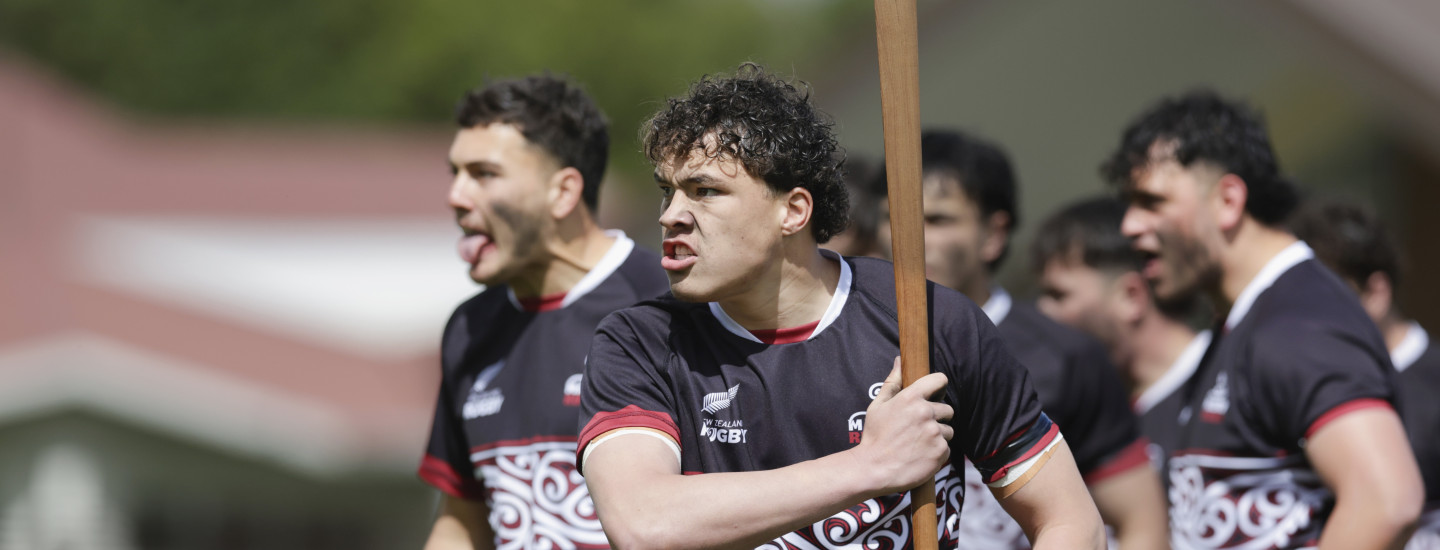Cultural Identity
No matter what your background is or where you are from, your culture is a big part of who you are.
What is Cultural Identity?
Cultural identity is about a feeling of belonging; our background and our whānau can play a massive part in that. For some people their cultural identity involves more than one group; that can be pretty special but it can also be challenging sometimes.
No matter what your background is or where you are from, your culture is a big part of who you are.
Pressure & expectations
Family, cultural or church expectations can be a challenge to balance with other parts of your life. For some rugby players one of the biggest challenges can be the high expectations and pressure placed upon them by family and friends.
This can make training and playing rugby stressful at times, as it can feel as though there are a lot of people to please! It’s important to know that you are not alone in experiencing this, lots of people have been, and are in, the same position.
Talking with teammates, a coach or someone you trust can be helpful in finding ways to manage the added pressure. Talking with family about how you feel can help you, as well as them, understand your experience better.
Feeling homesick

It's very common to experience feelings of homesickness when you are away from your home or family. It can feel daunting, upsetting and challenging to figure out where you belong and to feel comfortable.
It’s important to remember that your culture and your history can be a real source of strength and courage. Having people around you who can support you to stay connected with your culture can help you maintain your mental fitness and wellbeing.
Leaning on others
A Samoan proverb states “My strength does not come from me alone, but from many”. Even though you may be away from your family or your home, it’s important to maintain those cultural links and relationships. Getting involved in your community or church can be a huge source of strength. Talking and learning about our culture and history can help us feel like we belong.
Sometimes it can be hard to open up to our families and elders, but that doesn’t mean we can’t still get support when we need it. Other friends and support people can be a great help. Even if they don’t belong to the same culture, having someone to listen and to talk to will help to start getting things sorted.
Different Cultures
One of the best things about New Zealand is the unique mix of people and cultures. It’s important to acknowledge the different ways our cultures interpret and view wellbeing and mental fitness, what works for one person might be quite different for someone else.
The rugby community is made up of people from all different backgrounds and cultures and understanding what mental fitness and wellbeing may mean for you and others is helpful.
-
Kaupapa Māori Services
Whakawhanaungatanga (the process of forming relationships) is a key part of staying mentally fit. Staying in touch and connected with your whānau is really important and can help us to:
- Maintain our mental fitness
- Feel loved and appreciated
- Have good support when things are tough
- Feel safe in asking for help
- Support others when they need it
Struggling with aspects of your wellbeing or going through tough times is nothing to be ashamed of. Having a kōrero with someone kanohi ki te kanohi (face to face) is a great way to get support. If you don’t feel ready for that you could also try talking over the phone.
Depression.org(external link) has some great information around keeping yourself feeling good as well as how you can look out for your whānau and others.
You can also try the ‘Aunty Dee’(external link) site. Created to help young Pacific and Māori people tackle the challenges and problems they face. Aunty Dee helps you come up with solutions and find the best way to act.
Have a look at some of the free phone lines that provide support here or Te Ao Māori services available across the country below.
Nationwide services search:
Auckland
Canterbury:
Southland:
-
Pasifika Services
Everyone can experience challenges with their wellbeing in different ways and for some of our Pasifika communities there can be a lot of shame and embarrassment around how they’re feeling.
Feelings of anxiety and depression can often be felt physically within our body. We can sense them in our ngākau (stomach) in our pūmanava (heart) and in our mind.
It can sometimes feel like we’re in the middle of a storm with no clear way to get out. It’s these times when being courageous and reaching out for help is the best thing we can do to support ourselves and feel better. Talking to people within our community or church groups can help maintain our connections with those who can support us and be a source of strength.
You can also try the ‘Aunty Dee’ (external link)site. Created to help young Pacific and Maori people tackle the challenges and problems they face. Aunty Dee helps you come up with solutions and find the best way to act.
Depression.org(external link) also has some good information on how you can get involved with your community and get support when you need it.
Have a look at some of the free phone lines that provide support here or Pasifika services available across the country below.
Nationwide Services Search:
Auckland:
- Etu Pasifika Auckland(external link)
- Etu South Auckland(external link)
- MapuMaia free counselling(external link)
Canterbury:
Southland:
Nationwide:


